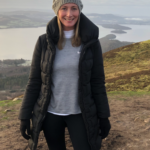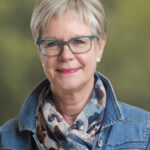Listening Sessions are a key part of QNIS’ Healthier Pregnancies, Better Lives programme. Lorna Dhami QN and I have been ‘testing the water’ on how prospective parents feel about their reproductive health care, and how General Practice Nurses feel about providing information, services and support in this area. Our focus was specifically on preconception and interconception health care. This included screening to identify risks and either eliminate or mitigate those risks prior to conception.
Switch
What Respondents Want to Happen Next
This is the fourth and final blog presenting the results of the spring 2022 QNIS/Healthier Pregnancies, Better Lives survey of an illustrative sample of Scotland’s community nurses and midwives on Preconception Health, Care and Education.
Your Views and Experiences
This is the third blog presenting the results of the spring 2022 QNIS/Healthier Pregnancies, Better Lives survey of an illustrative sample of Scotland’s community nurses and midwives.
Preconception Health Risks and Realities
Read about a fascinating mixture of answers showing what 212 survey respondents across Scotland do, and don’t, know about preconception care.
Post Pandemic – What Now for Relationship, Sexual Health and Parenthood Education?
Dr Colin Morrison is a partner in TASC (Scotland) and the lead developer of the national RSHP resource. He has a longstanding interest in children’s human rights, health and wellbeing. He has worked as a teacher, youth worker, play worker and adult educator. His doctoral study explored relationships and sexual health education for children and young people with learning disabilities.
Mind the Gap
In April 2022, QNIS’ Healthier Pregnancies, Better Lives programme supported by The National Lottery Community Fund and Cattanach, conducted its second online survey. This survey focused on preconception health, education and care.
It sought to understand what Scottish community nurses and midwives know and do about this often-overlooked area of primary healthcare. This incredible community of healthcare professionals once again took time from their busy schedules to share their knowledge and help us learn from their experience. The questionnaire was designed by QNIS Senior Fellow (Dr Jonathan Sher), HPBL Consultant (Michele Stranger Hunter) and Project Coordinator (Lisa Lyte).
The Survey Facts:
They Spoke, We Listened
In looking internationally for answers 12 years ago, I realised policies and practices in reproductive health and pregnancy are not universal. Instead, they are deeply embedded in cultural and societal norms. That is why a strategy and tool developed in the U.S. cannot simply be franchised and remain effective in Scotland.
My Education Encouraged Self-Discovery
Michelle Dalgarno was nominated by Glasgow Caledonian University for excellence in her Postgraduate community nursing studies. We were delighted to award her the QNIS academic prize and she has written a short blog about her experience. To be awarded this academic award from the QNIS on completion of my PgDip in advancing professional practice has…
Don’t presume women with chronic conditions don’t want babies
Dr Karin Hammarberg is a Senior Research Fellow in the School of Public Health and Preventive Medicine at Monash University in Melbourne, Australia. She is a Registered Nurse with 20 years’ experience as clinical co-ordinator of IVF programs. Karin’s main research interests are fertility and preconception health promotion; the psychosocial aspects of infertility and infertility treatment; the health and development of children born as a result of assisted conception; and women’s health.
Nothing About Us Without Us
Preconception education, counselling and care – prior to a first or subsequent pregnancy – are the missing links in supporting healthier women, healthier pregnancies and improved birth outcomes. In my first blog for this series, I talked about increased access to affordable, effective contraception and how this was not the ‘magic bullet’ I thought it…








